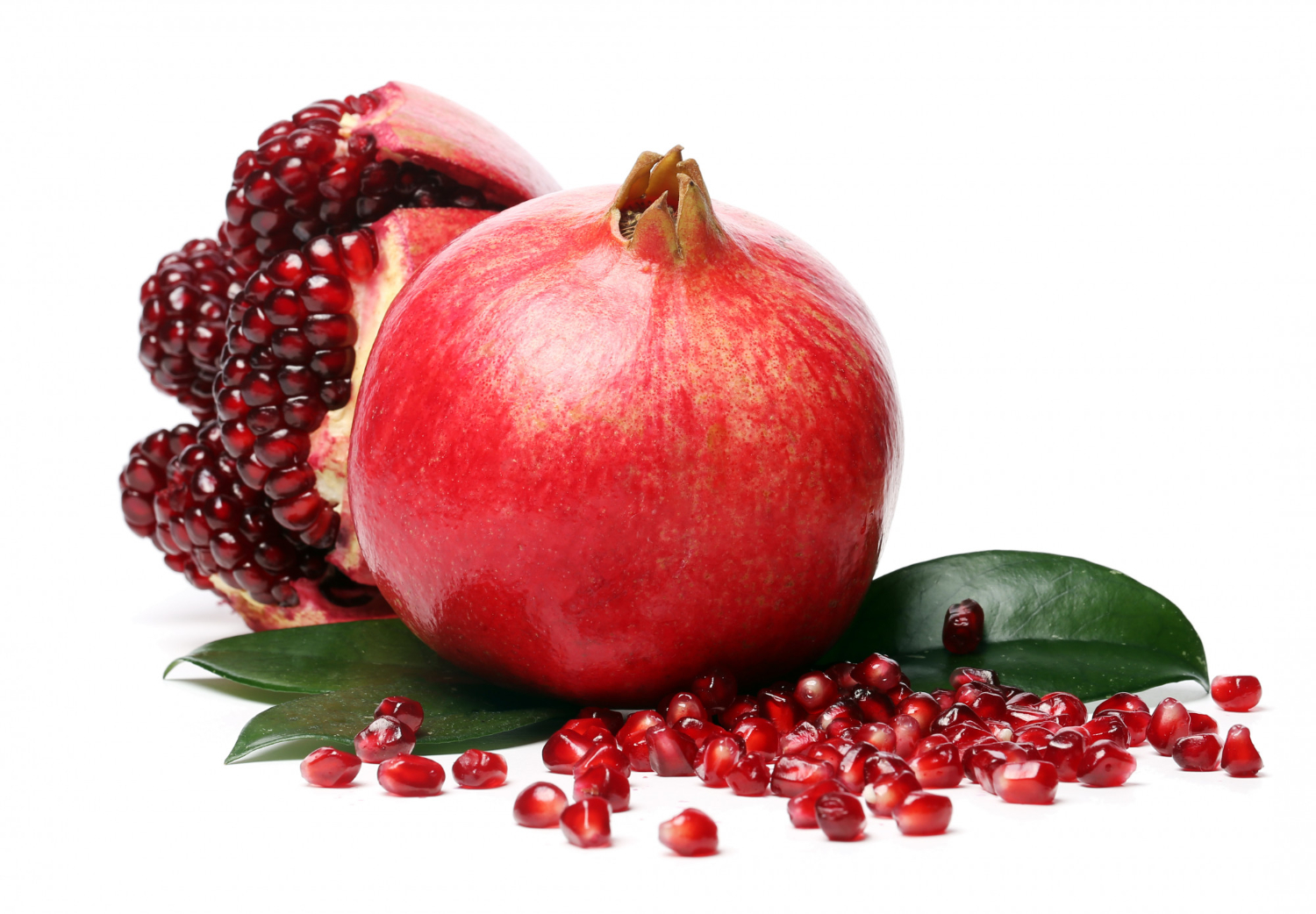Pomegranates: Everything You Need to Know

In this article:
Overview – Health benefits – Did you know
Pomegranate is a red fruit that grows in Asia, Europe, Africa and the Mediterranean region. The juice and seeds enclosed within the rough outer layer are edible and have been used not just as food but also as medicine since ages. The seeds of the pomegranate are used as a spice called as anardana in India and Pakistan.
Overview
Pomegranate is the fruit of the Punica granatum tree and is consumed all over the world either as a fruit or used in cooking, juice blends, baking and preparing alcoholic beverages. In recent times, it has gained a lot of attention as a “superfood” – one that can help give relief from a wide variety of disease symptoms. This is believed to be a result of the high antioxidant properties of pomegranate which contain antioxidant compounds called polyphenols.
Health benefits of pomegranates
Pomegranate fruit has been rated to contain the highest antioxidant capacity in its juice, when compared to other commonly consumed polyphenol-rich beverages
The antioxidant capacity of pomegranate juice was shown to be three times higher than that of red wine and green tea, based on the evaluation of the free-radical scavenging and iron-reducing capacity of the juices. [1]
The fruits as well as the root and bark of the pomegranate tree are used in traditional medicine in the Middle East and Asia. Pomegranate has been mainly used against diarrhea, intestinal parasites, haemmorhoids and to stop nosebleeds.
Studies have found a compound called punicalagin in this fruit that has shown a beneficial effect on the blood vessels and the heart. This compound has been found to lower blood pressure and cholesterol levels.
Pomegranate extract obtained from the rind and juice of the fruit has been found to have a toxic effect on cancer cells. These studies have mostly been done on cancers of the breast, prostate and lungs.
Research also shows that the flavonols present in pomegranate help to reduce inflammation in the bones. As a result, there is slower damage of cartilage and this is believed to be responsible for the beneficial effect of pomegranates on bone health.
Pomegranate has shown an ability to protect against depression; consuming this fruit may actually be one of the ways to keep yourself happy and relaxed.
Can pomegranates improve memory?
Research into how pomegranates and pomegranate juice may affect cognitive function is still in the early stages. One small trial asked participants with mild age-associated memory complaints to drink 8oz of pomegranate juice daily, and found an improvement in verbal and visual tasks after four weeks. Other research has suggested that pomegranate juice may have cognitive benefits in mice. Again, more robust research is needed before a health claim can be made for pomegranates and memory. [2]
Did you know this about pomegranate?
For all its health benefits, pomegranate is not recommended in certain situations. Persons with diarrhea must not consume pomegranate fruit, juice or extract.
Like grapefruit, pomegranates are also believed to interact with many medications such as blood pressure or cholesterol lowering drugs. Therefore, if you are on regular medication, make sure you tell your doctor about your consumption of pomegranates.
Pomegranate is known to have contraceptive and abortion-inducing properties. Therefore, people who are planning to have a baby and pregnant women must avoid consumption of this fruit.
Article Sources
1: Gil MI Tomás-Barberán FA Hess-Pierce B Holcroft DM Kader AA . Antioxidant activity of pomegranate juice and its relationship with phenolic composition and processing. J Agric Food Chem. 2000;48:4581–4589.
2: BBC goodfood – The health benefits of pomegranate
Content disclaimer
Content on this website is provided for information purposes only. Information about a therapy, service, product or treatment does not in any way endorse or support such therapy, service, product or treatment and is not intended to replace advice from your doctor or other registered health professional. The information and materials contained on this website are not intended to constitute a comprehensive guide concerning all aspects of the therapy, product or treatment described on the website. All users are urged to always seek advice from a registered health care professional for diagnosis and answers to their medical questions and to ascertain whether the particular therapy, service, product or treatment described on the website is suitable in their circumstances. Medimission.com shall not bear any liability for reliance by any user on the materials contained on this website.






